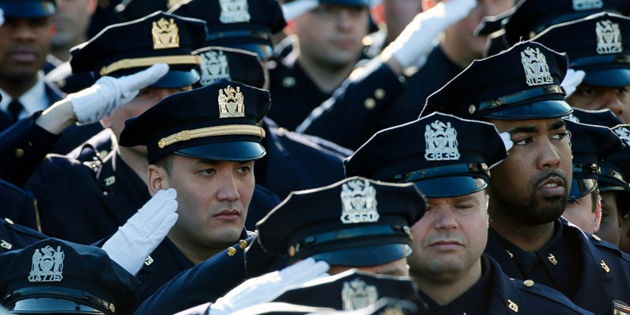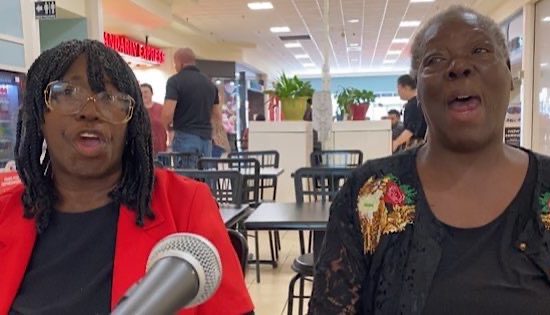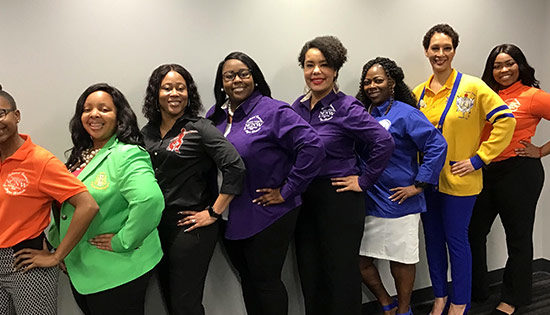Nick Rudnik, Valdosta Today Opinion Contributor:
The Anti-Police Rhetoric is a Classic Case of Misplaced Anger, Misunderstanding
In the past several months, with intense protests and debate raging in the post-Eric Garner, post-Michael Brown, post-Tamir Rice political arena, law enforcement has “gotten a bad rap.” Recently, this rhetoric has reached a critical mass.
Disturbing video has surfaced of protesters in Manhattan, following the announcement that a New York City grand jury elected not to indict the police officers involved in the chokehold death of Eric Garner, chanting: “What do we want? Dead cops! When do we want it? Now!”
Taken alone, this rhetoric is unequivocally deplorable. But coupled with the recent and tragic murders of two New York City police officers, Rafael Ramos and Wenjian Liu, the hate speech exhibited by some pro-Garner protesters goes even more beyond the pale—if that is even possible, given the vitriolic nature of certain anti-police rallies in recent weeks.
If our nation is serious about having a substantive conversation on race and policing, then let’s have it. What happened on December 20 to Officers Ramos and Liu has been called by New York City officials an “assassination,” at the hands of a deeply troubled man, Ismaaiyl Brinsley. Brinsley, who was a Baltimore resident, demonstrated a hardline and violent anti-police sentiment on his Instagram social media page. In fact, Brinsley traveled to New York City with the sole aim of murdering police officers before taking his own life.
Undeniably, Brinsley’s inhuman act of violence was, to a certain extent, a consequence of the anti-police rhetoric propagated over national airways, by some in the national media. Indeed, there are very real, structural problems with policing in the United States. Few, if any, would deny this. New York Times syndicated columnist Nicholas Kristof reminds us that “police arrest blacks at 3.7 times the rate of whites for marijuana possession,” yet social scientists posit that young whites and blacks use marijuana at roughly the same frequency.
According to the non-profit organization, the Sentencing Project, blacks are, generally, 5.6 times more likely to be incarcerated than whites. The proportion of blacks to whites currently incarcerated in the U.S. exceeds that of prison populations found in apartheid era South Africa in 1970. Even more, African Americans are 4 times more likely to be shot by a police officer than whites.
My social science training informs me that these issues are greater than the empty (and frankly, wrong) counterfactual that “blacks are simply more likely to commit crimes”—or something to that effect. Demographics, economics, education, upbringing, and a host of other factors all play into this deep divide.
Here’s how I thread this needle of bad policing strategies: don’t blame our nation’s cops, blame the shameful politicians that have fundamentally failed to address the constituent, structural issues inherent to policing.
The analogy most apt to understand this dynamic is that we don’t blame our soldiers who go and fight unpopular wars; quite the contrary, we blame the politicians who got us there in the first place. In the same way, we shouldn’t place the burden and blame on our nation’s police officers. The vast majority of police officers earnestly work hard each day to protect our communities from crime. And, we should be deeply thankful for their service and heroism.
What we must be cognizant of is that police are “street-level bureaucrats.” They don’t make the laws and policies they are sworn to enforce. Rather, they respond to crime within the confines of the sets of standards imposed on them by our nation’s politicians—at the local, state, and federal levels.
It is a classic fallacy (known as a false dilemma), to suggest that you can either support our police or be averse to the racial iniquities of policing. This dynamic is a giant misrepresentation. Going forward, we should stand with our police officers, but also stand for positive change that addresses the plain, flat-out, bad laws that our nation’s law enforcement officers are obligated to enforce.
If the tragedy of Officers Ramos and Liu is a teachable moment, it’s that blaming the police officer for the sins of the politician only leads to more senseless, misplaced anti-police violence. We should teach our children that policemen and women are the “good guys.” But we also need to recognize that certain laws and policies (e.g., stop and frisk, broken windows policing, and more) must be reevaluated in order to more effectively combat criminality in our society.
Emerson teaches us that “a foolish consistency is the hobgoblin of little minds, adored by little statesmen and philosophers.” It is a “foolish consistency,” par excellence, to be forced to choose between either supporting our cops or being against bad policing strategies—as many in the media want us to believe. I, for one, will take the third way: I’ll support our police, but not the politicians who put our nation’s law enforcement officers in this abysmal predicament, in the first place.
In a phrase, let us all support our cops, and not our shortsighted politicians.
 Nicholas A. Rudnik is currently pursuing a degree in political science with a concentration in American politics at Valdosta State University. Previously, he’s served as a congressional page in the U.S. House of Representatives during the 111th Congress and in the Office of U.S. Congressman Sanford Bishop. Further, Nick has served on staff at an institutional interest group, the Association of American Law Schools, in Washington and has worked in the private sector. He has presented his research, focused primarily on congressional parties and elections, at regional academic conferences and hopes to pursue a graduate degree in political science. Nick is currently completing two manuscripts relating to southern congressional elections and judicial decision-making in the area of campaign finance; he can be contacted via e-mail at narudnik@valdosta.edu. Follow Nick on Twitter: @NickRudnik.
Nicholas A. Rudnik is currently pursuing a degree in political science with a concentration in American politics at Valdosta State University. Previously, he’s served as a congressional page in the U.S. House of Representatives during the 111th Congress and in the Office of U.S. Congressman Sanford Bishop. Further, Nick has served on staff at an institutional interest group, the Association of American Law Schools, in Washington and has worked in the private sector. He has presented his research, focused primarily on congressional parties and elections, at regional academic conferences and hopes to pursue a graduate degree in political science. Nick is currently completing two manuscripts relating to southern congressional elections and judicial decision-making in the area of campaign finance; he can be contacted via e-mail at narudnik@valdosta.edu. Follow Nick on Twitter: @NickRudnik.











